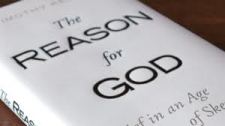Chapter 4: Response-Dependence: What’s in it for the Realist? –
Section IV.
This section covers Kant’s influence in the RD debate via McDowell’s revision of him.
From chapter 3, section III, though McDowell comes up again later in the chapter as well: John McDowell and others see “Kantian epistemology—or at least certain aspects of it—as pointing a way beyond the unresolved problems with logical empiricism, notably its failure to provide any adequate normative account of knowledge.” Repasting from section I:
John McDowell (and other analytic revisionists) “recommend a return to certain Kantian insights, albeit through a highly selective (‘naturalized’ or ‘detranscendentalized’) reading of Kant.”
These ‘revaluations’ “still inherit something of the logical-empiricist prejudice against explaining both “structure” and “genesis” of knowledge, both “process of arrival” and standards for being able to say “we’ve arrived”. It was for want of these things that analytic philosophy “gave way” to “Quinean ‘ontological relativity’, Kuhnian paradigm-relativism, Richard Rorty’s far-out linguistic-constructivist creed, and the ‘strong’ programme in sociology of knowledge.”
Norris says we need to recognize “that these problems have arisen very largely in consequence of the artificial divide between developments in post-Kantian ‘continental’ and Anglophone ‘analytic’ thought.”
McDowell’s revision attempts to de-transcendentalize the Kantian idea “of knowledge as resulting from the interplay of ‘spontaneity’ and ‘receptivity’”. This is supposed to overcome the subject/object duality and the ‘problem of knowledge’ “conceived in terms of establishing some correspondence-relation between mind and world, concepts and intuitions, or truth-bearing statements and truth-making factual or objective states of affairs,” – as opposed to Kant’s requiring that “phenomenal intuitions be ‘brought under’ adequate or corresponding concepts” which prompted reactions from those like Fichte, mentioned in chapter 3. Instead, McDowell sets all that aside and focuses on “Kant’s cardinal point about the interplay of ‘spontaneity’ and ‘receptivity’ as strictly inseparable aspects of the process by which mind and world are always already brought together in the act of knowing.”
Spontaneity: “the mind’s active role in the process of knowledge acquisition.”
Receptivity: “ensuring its compliance with certain empirical constraints, thus placing due limits on its otherwise boundless freedom to interpret the world in accordance with its own subjective or projective ideas.”
Norris says McDowell oscillates between spontaneity that goes all the way out (a world dependent on mind), and receptivity that goes all the way in (no active role for the mind in knowledge acquisition). Norris says this reflects the impossibility of naturalizing Kant’s thought, and that RD theory is a continuation of this effort in futility.
McDowell’s approach, although it would “be one that accorded a central role to the exercise of human judgement in its jointly ‘spontaneous’ and ‘receptive’ aspects [and] made full allowance for the mind’s active contribution while also acknowledging the kinds of constraint exerted by a due respect for the empirical evidence” (and so be an epistemic theory) – “it would allow no room for that trouble-making gap between ‘mind’ and ‘world’ that has pitched the realists against the anti-realists, or those who endorse an objectivist version of realism against those who fail to see how we can possibly (‘realistically’) conceive of truth as recognition-transcendent or epistemically unconstrained.” Since there is no gap, such issues would not arise, he thinks. However, he clearly comes down on one side of the quarrel, his being an epistemic approach wherein truth is dependent on the interplay between spontaneity and receptivity, rather than on the way things stand in the world.
Schlick, Neurath and others in the Vienna Circle attempted to “construct a purely phenomenalist or sense-datum language that would restrict itself to reporting just those observer-indexed sensory episodes and eschew all reference to a notional ‘reality’ outside or beyond experience. At any rate empiricism can scarcely be regarded as a strong candidate for ensuring that measure of objectivity or ‘receptive’ constraint upon the mind’s ‘spontaneous’ powers which McDowell ascribes to it.” [ Note that McDowell does not think receptivity constrains ‘despite or against’ spontaneity, but from within the same sphere, much like the conscience acts on the subject while being a part of the subject—so the constraint of receptivity is rational. This is how McDowell’s approach avoids, he thinks, the “pitfall of the Given”. ] All objectivity is lost when “reality is located inside the boundary which ‘encloses the conceptual sphere’, that is to say, something like the Fichtean idealist doctrine that reality is somehow a projection or creation of the mind’s autonomous world-constitutive power. Thus … McDowell can be seen to swing right across—despite his contrary claim—to a standpoint that asserts the priority of ‘mind’ over ‘world’.”
McDowell’s wrestlings with Kant show that these issues are important and real, and are not laid to rest in the RD theorists employment of the quantified biconditional (last section), an approach that is either tautological, or recognition-dependent, and which rejects that “truth must itself be construed as recognition-transcendent or epistemically unconstrained even though, as hardly needs saying, our knowledge of it must indeed by taken as subject to the kinds of limiting condition spelled out by epistemic theories.”









